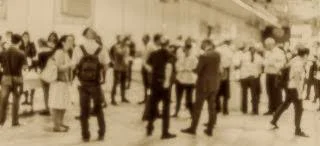From The Department of Energy Office of Science's webpage:
The U.S. Department of Energy’s (DOE) Office of Science is pleased to announce that the Office of Science Graduate Student Research (SCGSR) program is now accepting applications for the 2024 solicitation 1 cycle. Applications are due on Wednesday, May 1, 2024, at 5:00 p.m. ET.
SCGSR application assistance workshops will be held on March 7, 2024, 2:00 p.m.–3:30 p.m. ET and April 18, 2024, 2:00 p.m.–4:30 p.m. ET. The first workshop will provide a general overview of the program and the application requirements. It will also include a time for attendees to discuss their potential research topics and their alignment with the SCGSR priority areas with managers of each participating program office; register here. The second workshop will guide attendees through the application process, answer general questions, provide guidance on proposal writing, and feature discussions with scientists and former awardees; register here.
The SCGSR program provides supplemental awards to outstanding U.S. graduate students to conduct part of their graduate thesis research at a DOE national laboratory or facility in collaboration with a DOE laboratory scientist. The goal of the program is to prepare graduate students for scientific and technical careers critically important to the mission of DOE’s Office of Science. The research opportunity is expected to advance the graduate students’ overall graduate theses while providing access to the expertise, resources, and capabilities available at the host DOE laboratories.
SCGSR is open to U.S. Ph.D. students in qualified graduate programs at accredited U.S. academic institutions, who are conducting their graduate thesis research in targeted areas relevant to DOE’s Office of Science. Since its inception in 2014, the SCGSR program has provided support to over 1,066 graduate awardees from 161 U.S. universities to conduct thesis research at all 17 DOE national laboratories across the nation.
The SCGSR program is sponsored and managed by the Office of Science’s Office of Workforce Development for Teachers and Scientists, in collaboration with the Office of Science’s six research programs offices and two research and development and production offices, and with DOE national laboratories/facilities. Program administration support is provided by the Oak Ridge Institute for Science and Education.
More information on the SCGSR program can be found by visiting the SCGSR program website, attending the program’s virtual office hours which are held every Tuesday between 4:00–5:00 p.m. ET via this Zoom link, or by emailing the SCGSR team.











